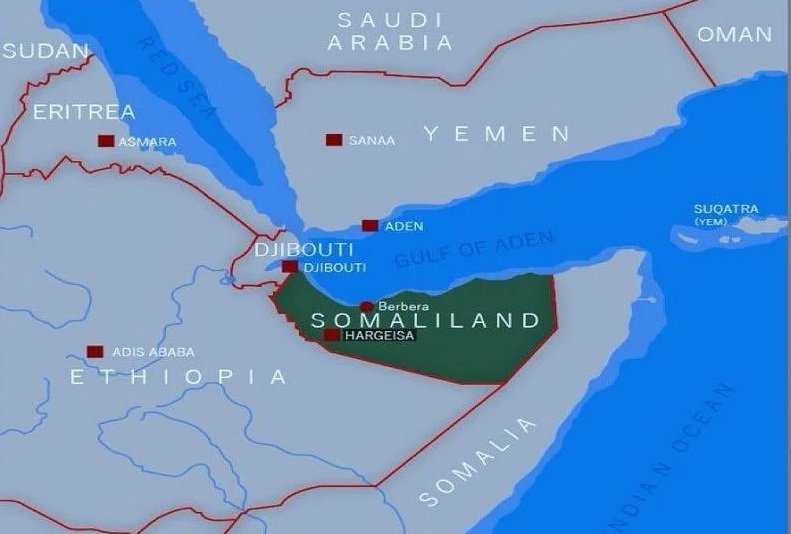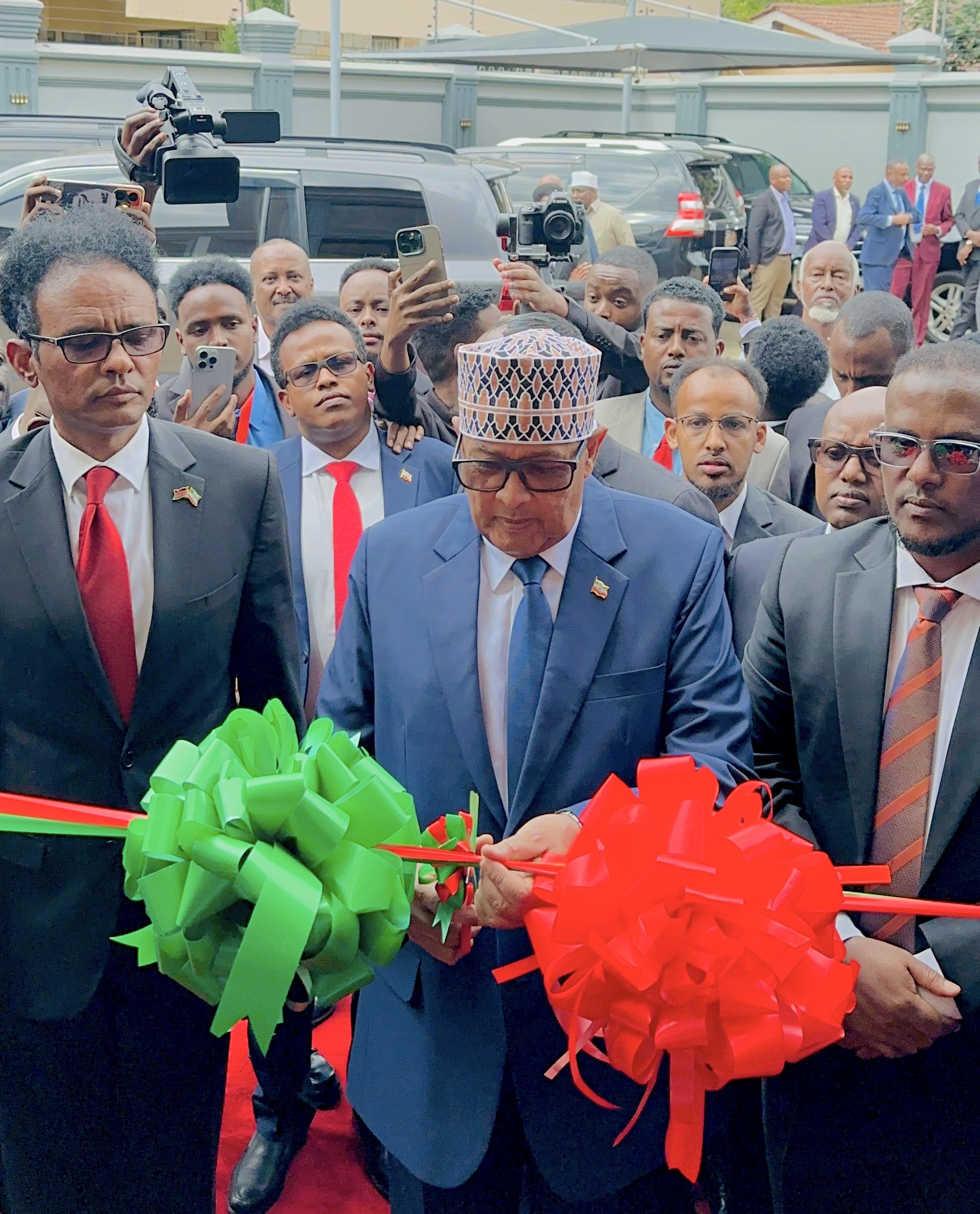Africa
Ethiopia and Somaliland: A Deal with Domino Effects

(Essayias Lesanu)
Ethiopia’s recent agreement with the unrecognized state of Somaliland, granting it access to the Red Sea, is a move that has raised eyebrows across the international community. This controversial decision by Prime Minister Abiy Ahmed’s government, however, is just the tip of the iceberg in a series of domestic and economic crises plaguing Ethiopia.
Domestically, the Abiy regime has been accused of exacerbating ethnic tensions, particularly targeting the Amhara community and other ethnic groups. Reports of human rights abuses and ethnic violence have marred Ethiopia’s international image and raised questions about the government’s commitment to a cohesive, peaceful, and inclusive national identity. This internal unrest not only destabilizes the nation but also undermines its social fabric, further complicating the task of nation-building. This move by the Abiy regime can be interpreted as an attempt to shift focus from domestic issues. Ethiopia is currently grappling with internal conflicts and economic challenges, including human rights allegations in Amhara and Tigray and a recent default on its debts. By engaging in this agreement, the Ethiopian government seems to be diverting public and international attention away from these pressing issues.
The economic situation in Ethiopia is equally alarming. The country is currently in a state of default on its debts, a situation that reflects deep-seated economic challenges. The Ethiopian currency, the Birr, is facing the threat of devaluation amidst skyrocketing inflation rates. Such economic turmoil not only affects the day-to-day lives of Ethiopians but also casts doubt on the nation’s ability to meet its international obligations and maintain economic stability.
Additionally, the Ethiopian economy’s heavy dependence on foreign aid and donations adds another layer of vulnerability. With the international community increasingly concerned about the government’s human rights record and its handling of internal conflicts, there is a real risk that this vital lifeline could diminish. This would further exacerbate the economic crisis, leading to a vicious cycle of poverty and instability.
The decision to engage with Somaliland must be viewed within this broader context. While seeking access to the Red Sea is a strategic economic move for landlocked Ethiopia, aligning with an entity unrecognized by the international community adds to the nation’s growing list of geopolitical missteps. This not only provokes neighboring countries, particularly Somalia, but also risks alienating key international partners who are crucial for Ethiopia’s economic survival.
Furthermore, aligning with Somaliland could be seen as Ethiopia implicitly supporting its claim of independence, a stance that directly challenges Somalia’s territorial integrity. Somalia, which views Somaliland as part of its sovereign territory, has reacted strongly against this agreement. This has the potential to escalate tensions between Ethiopia and Somalia, and could even draw in other regional players, increasing the risk of a wider conflict.
The potential fallout from this agreement extends beyond diplomatic relations. The heightened tension could scare away foreign investors, wary of instability and unpredictability in the region. For Ethiopia, which is in dire need of foreign investment for its economic growth and development, this is a counterproductive outcome.
Moreover, the possibility of a regional conflict, with countries like Eritrea possibly supporting Somalia against Somaliland and Ethiopia, adds to the already complex and volatile situation in the Horn of Africa. Such a conflict could have disastrous consequences, further destabilizing the region and leading to a humanitarian crisis.
In conclusion, Ethiopia’s agreement with Somaliland, viewed against the backdrop of domestic ethnic strife, human rights concerns, and a precarious economic situation, reflects a risky gamble by the Abiy Ahmed regime. While the quest for Red Sea access is understandable, the method and timing raise serious questions about the government’s priorities and its understanding of regional dynamics. This move could exacerbate Ethiopia’s challenges, both domestically and internationally, potentially leading to further isolation, economic hardship, and instability. The government’s focus should instead be on addressing its internal issues, stabilizing the economy, and fostering a more inclusive and peaceful national environment.
(The author can be contacted for further comments or inquiries : [email protected])
Opinion are author’s own.
Kenya Insights allows guest blogging, if you want to be published on Kenya’s most authoritative and accurate blog, have an expose, news TIPS, story angles, human interest stories, drop us an email on [email protected] or via Telegram
-

 Grapevine2 weeks ago
Grapevine2 weeks agoAlleged Male Lover Claims His Life Is in Danger, Leaks Screenshots and Private Videos Linking SportPesa CEO Ronald Karauri
-

 Grapevine1 week ago
Grapevine1 week agoRussian Man’s Secret Sex Recordings Ignite Fury as Questions Mount Over Consent and Easy Pick-Ups in Nairobi
-

 Investigations6 days ago
Investigations6 days agoMulti-Million Dollar Fraud: Three Kenyans Face US Extradition in Massive Cybercrime Conspiracy
-

 News4 days ago
News4 days agoTHE FIRM IN THE DOCK: How Kaplan and Stratton Became the Most Scrutinised Law Firm in Kenya
-

 Economy5 days ago
Economy5 days agoIran Demands Arrest, Prosecution Of Kenya’s Cup of Joe Director Director Over Sh2.6 Billion Tea Fraud
-

 Business5 days ago
Business5 days agoA Farm in Kenya’s Rift Valley Ignites a National Reckoning With Israeli Investment
-

 Business2 weeks ago
Business2 weeks agoM-Gas Pursues Carbon Credit Billions as Koko Networks Wreckage Exposes Market’s Dark Underbelly
-

 Africa1 week ago
Africa1 week agoFBI Investigates Congresswoman Ilhan Omar’s Husband’s Sh3.8 Billion Businesses in Kenya, Somalia and Dubai


























